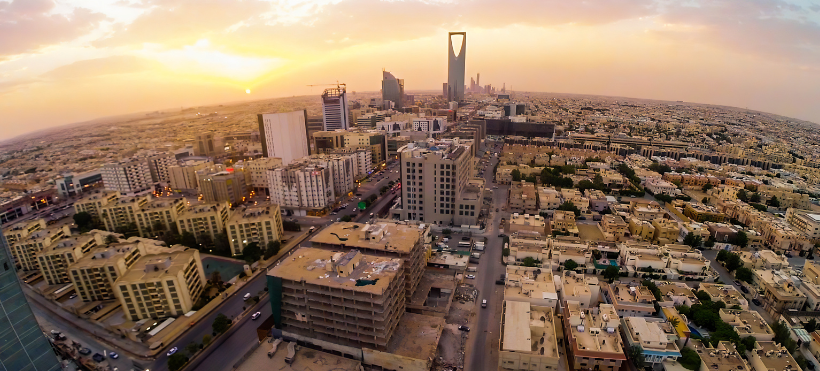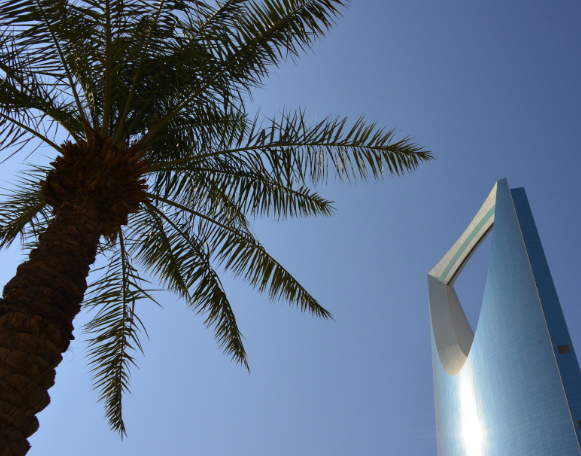Saudi Arabia’s New Factory Regulatory Framework: What It Means for Investors and Businesses in the GCC
Accurate Middle East — Market Analysis • Feasibility Studies • Business Planning
Introduction: Why This Article Matters for Your Business
Saudi Arabia has taken another decisive step in shaping its industrial future by issuing a new regulatory framework for factories across both urban and rural areas. This move is not just an administrative update—it is part of a wider economic transformation under Vision 2030. For business owners, investors, and decision-makers considering market entry into Saudi Arabia or the wider GCC, this announcement signals changing rules, higher compliance standards, and new opportunities for growth.
At Accurate Middle East, we wrote this article to answer the key question: What does Saudi Arabia’s new regulatory framework mean for foreign and regional businesses, and how can companies seize this moment strategically?
By the end of this analysis, you will understand:
- The key elements of the regulatory framework and its direct implications for factories.
- How it fits into the industrial diversification strategy of Vision 2030.
- Why now is a crucial time to consider feasibility studies, market analysis, and tailored business planning if you plan to expand into the GCC.
- How Accurate Middle East can support you with practical, data-driven consulting services designed to help you enter and thrive in these markets.

Regulations Manufacturing Riyadh Saudi Arabia 2025
Saudi Arabia’s Regulatory Shift 2025: Raising the Bar for Industry
The new framework, introduced by the Ministry of Municipal, Rural Affairs and Housing, establishes clear and stricter requirements for factories in both urban and rural locations. Unlike older regulations that often treated industrial zones differently, this unified approach ensures all factories—whether inside Riyadh’s growing industrial clusters or in more remote regions—adhere to the same elevated standards.
Key aspects include:
- Safety requirements that go beyond previous standards.
- Design and construction rules intended to harmonize industrial activity with urban planning.
- Operational compliance, ensuring factories follow modern processes and reporting.
- Digital elements such as QR code compliance, which will streamline transparency and governance.
These measures are not merely bureaucratic hurdles. They are designed to attract international investors, reduce regulatory ambiguity, and provide assurance that the industrial base of Saudi Arabia will be globally competitive.
Vision 2030 Context: More Than a Regulatory Change
Saudi Arabia’s Vision 2030 is a roadmap to diversify the economy away from oil dependency. Manufacturing, logistics, and industrial development form the backbone of this transformation.
The new regulatory framework is a direct enabler of Vision 2030’s National Industrial Development and Logistics Program (NIDLP). By creating consistency in how factories are planned and operated, Saudi Arabia is signaling to global manufacturers and regional players: this is a safe, scalable, and strategically structured place to invest.
Recent numbers underscore this momentum:
- In June 2025, the Ministry of Industry and Mineral Resources issued 83 new industrial licenses, valued at more than SR 950 million (USD 253 million).
- In the same month, 58 new factories began operations, worth SR 2.85 billion.
- Industrial licenses now span chemicals, food processing, pharmaceuticals, and heavy industries, showing how diversified the base is becoming.
This rapid acceleration demonstrates that regulation is not slowing growth—it is reinforcing it. The factory regulatory framework serves as a bridge between ambitious national goals and practical implementation for investors.
Note: Figures referenced are as reported for June 2025.
Why This Matters for Investors and Business Owners

Saudi Arabia’s New Factory Regulatory Framework August 2025
For investors eyeing opportunities in Saudi Arabia and the GCC, the implications are clear:
| Key Area | What Has Changed Under New Framework | Impact on Investors & Business Owners |
|---|---|---|
| Safety & Design Standards | Factories must meet stricter design, construction, and safety protocols. | Higher upfront compliance costs, but improved operational resilience and easier access to financing. |
| Urban & Rural Consistency | Same rules apply across all geographic zones. | Expansion possible beyond major hubs (Riyadh, Jeddah), enabling growth in emerging regions. |
| Digital Compliance | QR code and digital traceability systems introduced. | Faster licensing, improved transparency, and stronger appeal to multinational partners. |
| Investment Climate | Unified rules aligned with Vision 2030 goals. | More predictable environment, higher investor confidence, and opportunities for early movers. |
| Industrial Licensing Momentum | 83 licenses issued in June 2025, worth SR 950m; 58 new factories launched, valued at SR 2.85bn. | Strong industrial growth trend supports market entry decisions. |
But seizing these opportunities is not automatic. It requires thorough research, financial modeling, competitive benchmarking, and tailored entry strategies—areas where our consulting team provides unmatched expertise.
The Role of Market Research and Feasibility Studies
When regulatory environments change, data-driven preparation is the only reliable path to making informed decisions.
At Accurate Middle East, we recommend that every client considering industrial or manufacturing entry in Saudi Arabia (or the wider GCC) begin with:
Market Research in Saudi Arabia & GCC
Evaluate demand trends, competitors, pricing dynamics, supply chain conditions, and consumer behavior. For example, in industrial food production, identifying shifts in local sourcing policies can dramatically affect your ROI. Our market research examples for GCC projects often highlight hidden competitive advantages that general statistics fail to capture.
Feasibility Study for Investors in KSA
Go beyond surface analysis with financial models, sensitivity tests, and demand forecasts. Our feasibility study services in Saudi Arabia help you answer critical questions like: If zoning costs rise by 15%, how will this impact profitability? or What is the payback period under different licensing scenarios? Investors can order feasibility study reports tailored to their industry, from manufacturing to pharmaceuticals.
Business Planning for UAE and GCC Expansion
After feasibility is confirmed, you need a practical plan—whether it is a factory set-up in Riyadh’s industrial belt or a joint venture in the UAE. A detailed business plan example includes financing, operations, marketing, and HR alignment with local labor policies. Our business planning services give you a clear roadmap that aligns with both regulatory compliance and market demand.
Many businesses underestimate the complexity of entering the GCC. They focus only on high-level opportunities without preparing for operational details. That is where specialized consulting becomes your competitive advantage.

Saudi Arabia’s New Factory Regulatory Framework
Examples: How Regulatory Change Shapes Strategy
Example 1: Food Processing Factory Expansion
A regional agribusiness planned to establish a processing plant near Jeddah. With the new framework’s design standards, the client needed a revised site plan, which increased construction costs by 7%. However, our feasibility study demonstrated that compliance would lower future operational risks and attract financing more easily. Within two years, the client secured a loan from a Saudi bank that explicitly valued regulatory compliance.
Example 2: Pharmaceutical Manufacturing License
A European pharmaceutical company explored setting up a factory in Riyadh. Through our market analysis, we found that the new regulatory environment would prioritize factories with digital traceability (QR codes)—critical for pharmaceuticals. The client adjusted its digital infrastructure plan early, securing a faster licensing process and a competitive edge.
These examples show how regulatory shifts are not obstacles, but catalysts for strategic advantage—if you approach them with the proper research and planning.
- In the UAE, industrial strategy is anchored by the “Operation 300bn” program, which aims to increase the industrial sector’s contribution to GDP.
- In Oman, Qatar, and Bahrain, industrial diversification is also being accelerated, albeit at different scales.
For companies considering GCC expansion, it is rarely enough to focus on one country. A regional entry strategy is often the smarter path. With our consultants based in Dubai, we regularly prepare multi-country feasibility studies, ensuring clients understand where to invest first, how to stage growth, and how to maximize synergies between different GCC markets.
Planning a Factory in Saudi Arabia or the UAE?
Understanding the regulatory framework is just the first step. To minimize risks and secure investment success, businesses often require a feasibility study in KSA or the UAE. A well-structured study evaluates market demand, compliance requirements, financial projections, and operational challenges—helping you make informed decisions before launching. Explore our feasibility study services in Saudi Arabia and the UAE to see how we support investors and manufacturers entering the GCC market.
How Accurate Middle East Supports You
With more than 15 years of consulting expertise across UAE, Saudi Arabia, and the GCC, our team at Accurate Middle East specializes in turning regulatory change into opportunity.
- Comprehensive Market Research tailored to your sector.
- Custom Feasibility Studies, including financial projections and ROI models.
- Business Planning Services, covering operations, compliance, and investment structuring.
- Local Knowledge + Global Standards, ensuring your strategy is practical in the GCC context yet aligned with international expectations.
Every report we deliver includes not only data and analysis, but also clear recommendations, typically in the form of a detailed PDF report and an Excel model. This allows you to simulate different scenarios and make confident investment decisions.
How To Start Working With Us
Saudi Arabia’s new regulatory framework for factories is more than a policy—it is a signal of long-term industrial transformation. For investors and business owners, it represents both challenges and unprecedented opportunities. The businesses that succeed will be those that move early, plan rigorously, and adapt intelligently.
At Accurate Middle East, we are here to help you navigate this transformation. Whether you need a sample market study, a feasibility report example, or a full-scale business plan, our team delivers clarity, precision, and actionable insights.



